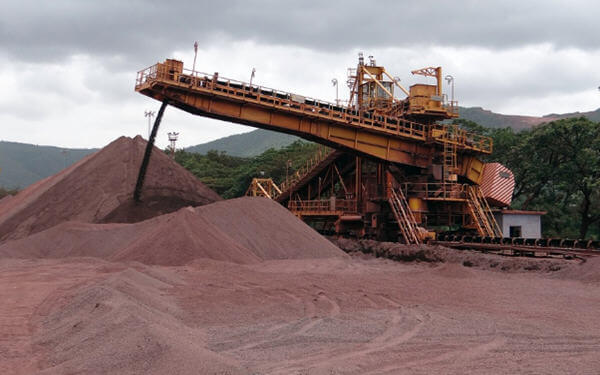
China opened trading in Dalian iron ore futures to overseas investors on Friday, aiming to increase its pricing influence over the commodity of which it is the world’s largest importer.
It is the second Chinese futures contract open to foreign entities without domestic registration after Shanghai launched crude oil futures in late March as part of a drive to challenge Western benchmarks and promote international use of the renminbi.
But unlike oil, the Dalian iron ore contract that launched in 2013 is already a reference for spot prices and is traded by overseas groups with registered entities in China. New rules allow them to forgo the cumbersome procedure of setting up a Chinese office.
“Anyone who wants to be on Dalian will already be there. This is just shifting the mechanics,” said one industry executive, adding: “Dalian is about China having a very, very successful domestic benchmark for iron ore and trying to make it more international.”
Glencore, the commodities trader and miner, said they were the first to trade Dalian iron ore after the contract was opened on Friday. Fang Xinghai, a top securities official, said at a ceremony in Dalian that China would “internationalise all the mature futures contracts and expand Chinese influence”, although he did not give a timetable.
China imports about 1bn tonnes of iron ore a year worth some $65bn to feed its vast steel industry, representing two-thirds of global exports. Dalian’s trading volumes last year were 20 times global iron ore trade, and 25 times the volumes on the Singapore Exchange’s rival contract — giving it large sway over prices.
Although the exchange’s iron ore futures are already actively traded by China-based foreign companies, the new rules could attract more foreign investors, said Sebastian Lewis, an analyst at S&P Global Platts.
Dalian iron ore futures are “different and complementary to the existing dollar denominated, cash-settled seaborne derivative contracts, which are typically used to hedge seaborne cargoes”, he added.
As with China’s oil contract, foreign investors may initially be cautious because of China’s capital controls and because the market is subject to high levels of volatility due to the influence of retail investors who drive up to 80 per cent of trade, analysts said.
David Martin, Asia Pacific head of global clearing at JPMorgan, noted that there could be times of “idiosyncratic risk” where large volumes from retail investors lead to the price becoming uncorrelated from global supply demand fundamentals.
The appeal of the contract as a macroeconomic indicator will also be limited as the contract only trades for six hours a day, making it harder for traders to leave positions quickly in the event of new policy announcements.
“It will cater to people who want liquidity and tight/bid offer spreads but they have to balance that with the fact they can only access the market for six hours,” said a trader.
Source: FT.com